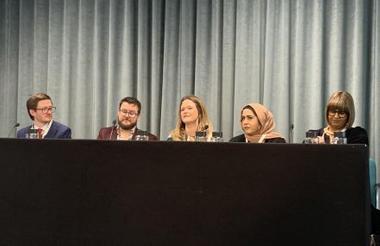When carrying out environmental, social and governance (ESG) reporting, charities should build trust by being more transparent with their staff, delegates heard at a conference this week.
When charities collect demographic data on their employees, Mandeep Rupra, director of equity and belonging of Citizens Advice, said charities should explain to their employees why they are collecting the data and what they are going to do with it.
Employees need to know that they have a safe space in order for them to disclose their demographic information, Rupra said, adding that disabled staff are particularly reluctant to share as they might think it will lead to repercussions.
“You have to create all those conditions to be able to do that,” she said at Charity Finance’s annual ESG Imperative conference yesterday.
Charities should also keep ESG reporting and results visible as this will help them build trust among employees by showing the impact of the work they are doing, she said.
“It's not enough to be inclusive leaders, it has to be visible inclusion,” Rupra said.
Building trust with honesty
Shazia Arshad, head of communications of Islamic Relief UK, said there isn’t always going to be a positive story to tell when charities are on their ESG reporting journey.
Charities need to be honest with their staff, supporters and donors about the challenges, Arshad said, which in turn can build trust among their audiences.
Meanwhile, Ben Clarkson, chief finance and operating officer of Parkinson’s UK said the charity did not find any ESG reporting framework to follow, so it improvised.
Clarkson said: “We just kind of decided that as long as it was sensible, consistent and based in reality, that would be enough.
“I don't think you have to necessarily wait for a particular framework to come along.
“I think it's better to try and do something and be honest about what you do know and don't know and be honest about the things you might not be getting right, whether that is about environmental issues or EDI.”
Sophie Brill, head of ethics of Oxfam GB, said as long as charities know their goals and their purpose, it can be helpful for charities to receive criticism so they can build on that feedback.
Related articles












